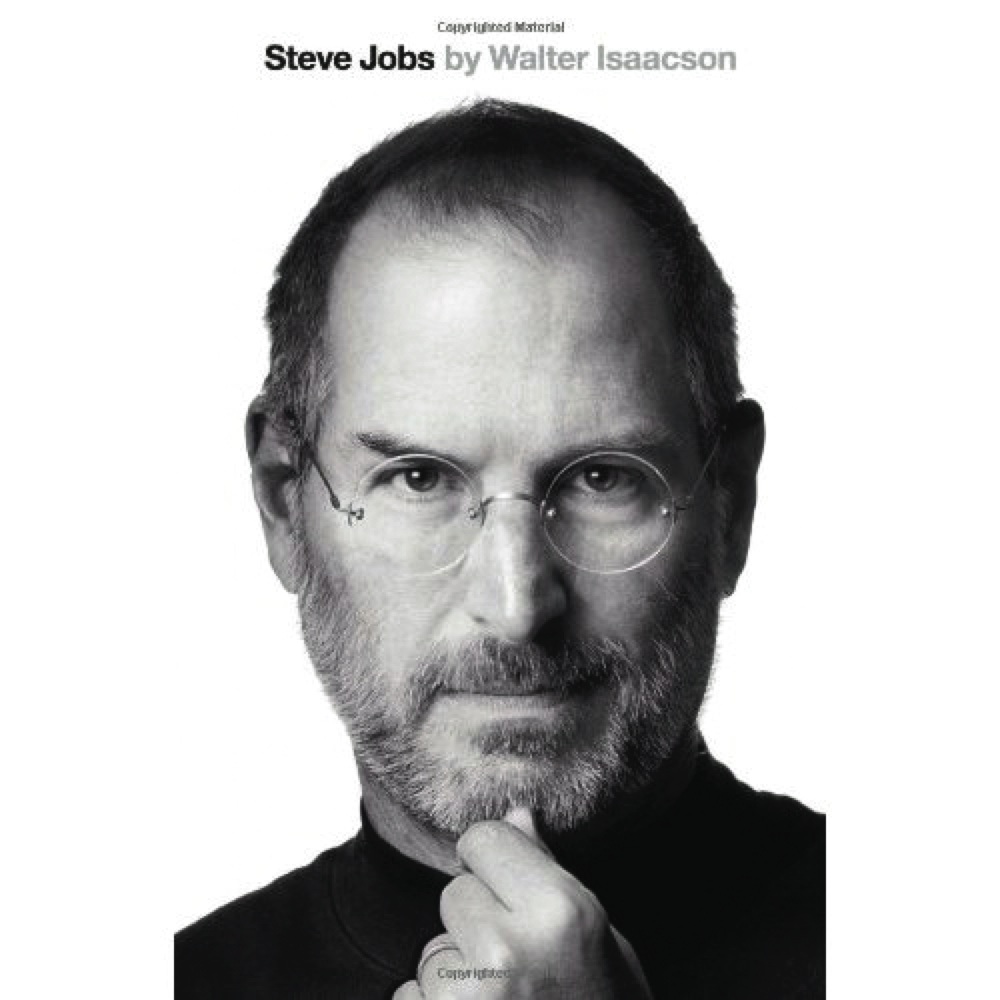Amid the heavy publicity for Walter Isaacson’s new biography of Steve Jobs, it’s starting to seem as if Jobs’ death last month was just part of the rollout.
That’s not as cynical as it sounds. Once you read about Jobs’ obsession with product introductions — think of the MacWorld stage shows at which he introduced each member of the Apple family, sequenced with media and ad campaigns that became famous in their own right — you may suspect that he orchestrated the hoo-ha currently in progress.
In fact, it was immediately before his secret cancer operation in 2004 that Jobs contacted Isaacson, biographer of Benjamin Franklin and Albert Einstein, to write about him. Isaacson couldn’t help but wonder if Jobs “saw himself as the natural successor in that sequence.”
He probably did, and by the end of this book, you may agree. “History will place him in the pantheon right next to Edison and Ford,” writes Isaacson. “(H)e made products that were completely innovative, combining the power of poetry and processors.”
And yet Steve Jobs was an absolutely confounding person. It is easy to believe Isaacson’s assertion that his subject did not interfere with this thorough, warts-and-all portrayal, shining a laser beam on the soul of a man who was both intuitive genius and perverse lout.
Raised in California’s Santa Clara Valley by adoptive parents, Jobs was steeped in the ferment of the 1970s, that strange brew of technological revolution, hacker subculture, psychedelic drugs and Eastern philosophy. With high school buddy Steve Wozniak, he created and sold something called a Blue Box, which allowed users to rip off the phone company and make free long-distance calls.
Soon after, they worked for Atari to develop a one-player version of Pong. (Jobs may have kept an unfair share of the proceeds, according to Wozniak.) After wandering barefoot in India for a year, he returned to found Apple in his parents’ garage, using $1,300 that he and Wozniak raised by selling an HP calculator and a VW bus.
A few years later, Apple went public and the nasty hippie was worth $256 million.
The road that takes Jobs from there to the amazing triumphs of his 40s and 50s — the iPod, iPhone, iPad and Apple stores — is the most interesting inside-business story you will ever read. The seductions, betrayals and other machinations between Jobs and people like John Sculley, Bill Gates and Michael Eisner are fascinating. More important, the story of how Jobs personally — and Apple as a company — completely tanked before rising from the ashes is one that every young entrepreneur and midlife stall-out needs to hear.
Jobs’ perfectionism and mania for control could be sublime — or ridiculous. At one point, he calls his friend Bono in a fury because an engineer has defected from Apple to Palm (Bono is an investor in a group that funded the latter). “You should chill about this,” Bono advises. “This is like the Beatles ringing up because Herman and the Hermits have taken one of their road crew.”
The only downside to the book’s rushed release is that it can’t include the worldwide response to Jobs’ death, which recalls the reaction to Princess Di’s des but makes more sense.
Is there any consumer product more closely identified with a single person? I have worked on Apple computers since 1983, and this review, like many others, I’d venture, is being written on a MacBook Pro — which, like my iPhone, might as well be welded to my body. I won’t be the only reader who finds the most heartbreaking moment in the book to be the one where Jobs is wheeled into the Apple offices in August 2011 to tender his resignation.
He was leaving us all.
Send questions/comments to the editors.



Success. Please wait for the page to reload. If the page does not reload within 5 seconds, please refresh the page.
Enter your email and password to access comments.
Hi, to comment on stories you must . This profile is in addition to your subscription and website login.
Already have a commenting profile? .
Invalid username/password.
Please check your email to confirm and complete your registration.
Only subscribers are eligible to post comments. Please subscribe or login first for digital access. Here’s why.
Use the form below to reset your password. When you've submitted your account email, we will send an email with a reset code.